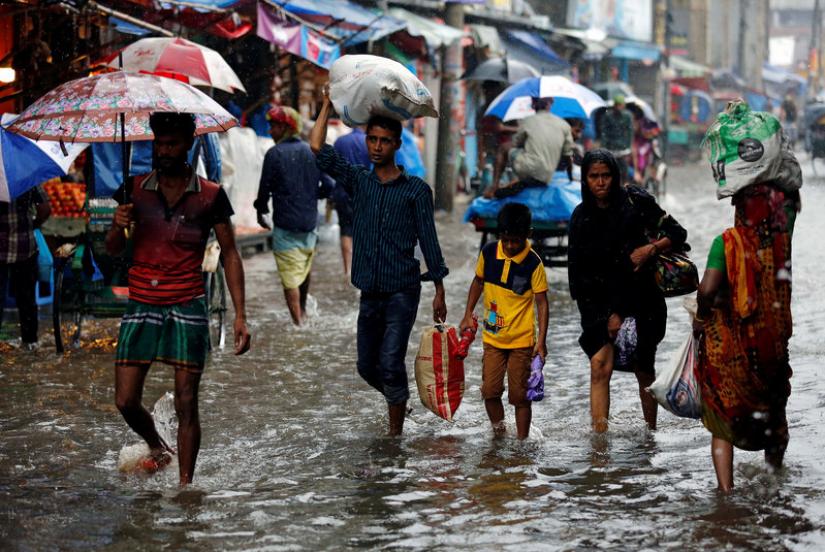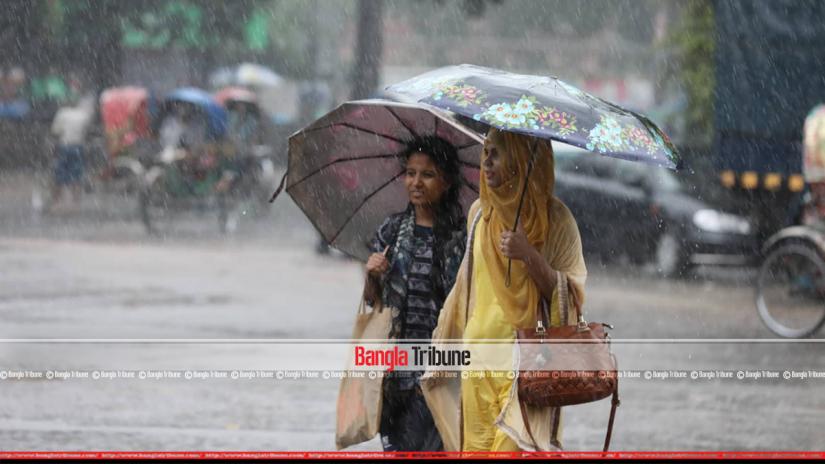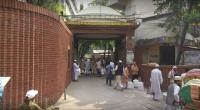 Experts here today observed that the rainfall patterns are changing in Bangladesh due to climate change which affecting the country’s agriculture as well livelihood of people.
Experts here today observed that the rainfall patterns are changing in Bangladesh due to climate change which affecting the country’s agriculture as well livelihood of people.
“The rainfall patterns are changing in the country gradually. We’ve already experienced a huge amount of rainfall in April this year, which is not usual at all,” renowned environmentalist Dr Qazi Kholiquzzaman Ahmad told a report launching ceremony in the city.
He said the changes in the rainfall patterns are adversely affecting the country’s many sectors, including agriculture and fisheries as well as the livelihood of people because they are not ready to cope with the changes.
The Ministry of Environment, Forest and Climate Change arranged the function to launch the report titled ‘Third National Communication of Bangladesh to the United Nations Framework on Climate Change (UNFCCC)’ at CIRDAP auditorium, state news agency BSS reports.
The report found that Bangladesh often experiences long duration of heavy rainfall associated with nor’wester accompanied by thunder and cyclonic storms. In Sept 1, 2004, country’s capital city of Dhaka had experienced a total of 341 millimeter (mm) of rainfall within a 24-hour period causing a severe urban flooding that halted regular activities. On Jun 11, 2007, around 408 mm rainfall was measured in Chattogram and the extreme rainfall resulted in serious urban flooding and landslides that killed at least 124 people.
In Sept 1, 2004, country’s capital city of Dhaka had experienced a total of 341 millimeter (mm) of rainfall within a 24-hour period causing a severe urban flooding that halted regular activities. On Jun 11, 2007, around 408 mm rainfall was measured in Chattogram and the extreme rainfall resulted in serious urban flooding and landslides that killed at least 124 people.
Dr Ahmad said the frequency and intensity of cyclones and storms have increased in the country for which at least one major storm hits every year.
According to the report, on Jul 28, 2009, about 333 mm of rainfall occurred within a 12-hour period in Dhaka that caused severe inundation in most of the city areas. On that particular day, over a period of six hours, about 290 mm of rainfall was recorded, the report added.
Citing the findings of the report, additional secretary of the ministry Dr Nurul Quader said Bangladesh’s contribution to the global carbon emission is only 0.29 per capita per year.
“Our contribution to the carbon emission has increased a little bit, but it is not significant at all,” he said.
Environment, Forest and Climate Change Minister Md Shahab Uddin, Director of the International Centre for Climate Change and Development Saleemul Huq, Deputy Resident Representative of UNDP Bangladesh Kyoko Yokosuka and Director General of the Department of Environment (DoE) Dr Sultan Ahmed, among others, spoke at the function with Environment and Forest Secretary Abdullah Al Mohsin Chowdhury in the chair.
 Others
Others
31052 hour(s) 22 minute(s) ago ;
Afternoon 03:16 ; Thursday ; May 02, 2024
Changes in rainfall patterns affecting people’s livelihood: Experts
Send
Bangla Tribune Desk
Published : 06:00, Apr 18, 2019 | Updated : 06:00, Apr 18, 2019
Published : 06:00, Apr 18, 2019 | Updated : 06:00, Apr 18, 2019
0 ...0 ...
/pdn/
Topics: Top Stories
- KOICA donates medical supplies to BSMMU
- 5 more flights to take back British nationals to London
- Covid19: Rajarbagh, Mohammadpur worst affected
- Momen joins UN solidarity song over COVID-19 combat
- Covid-19: OIC to hold special meeting
- WFP begins food distribution in Cox’s Bazar
- WFP begins food distribution in Cox’s Bazar
- 290 return home to Australia
- Third charter flight for US citizens to return home
- Dhaka proposes to postpone D8 Summit
Unauthorized use of news, image, information, etc published by Bangla Tribune is punishable by copyright law. Appropriate legal steps will be taken by the management against any person or body that infringes those laws.
Bangla Tribune is one of the most revered online newspapers in Bangladesh, due to its reputation of neutral coverage and incisive analysis.
F R Tower, 8/C Panthapath, Shukrabad, Dhaka-1207 | Phone: 58151324; 58151326, Fax: 58151329 | Mob: 01730794527, 01730794528


